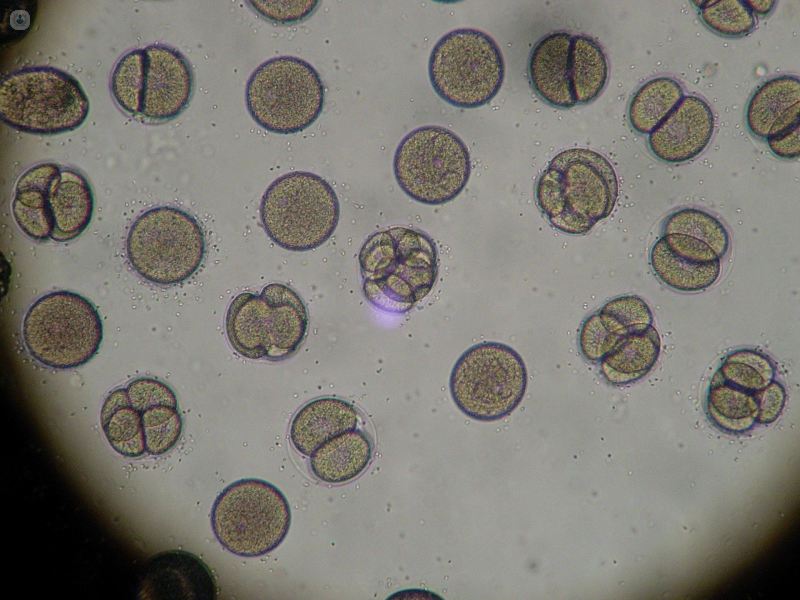Mosaicism
Dr Theofilos Polychronakis - Paediatrics
Created on: 10-16-2019
Updated on: 04-03-2023
Edited by: Sophie Kennedy
What is mosaicism?
Mosaicism is when someone is born with two or more genetically different sets of cells in their body. Usually, each cell contains forty-six chromosomes (made up of twenty-three pairs), but for people with mosaicism, some of their cells may contain forty-seven chromosomes. Mosaicism is a result of an error occurring during mitosis, which is the process of cell division and how babies develop in the womb. An error in mitosis means that a cell doesn't divide evenly into two cells. The result of this can be certain health issues and genetic disorders. For example, mosaic Down’s syndrome, Turner syndrome, Klinefelter syndrome and Trisomy 18 are all conditions that can result from mosaicism.

Prognosis
The implications of mosaicism can be difficult to predict as the proportion of cells in the body that have altered genes or chromosomes and the proportion that are normal cells can vary. People who do have mosaicism in their cells may suffer from symptoms of a disease that results from altered genes or chromosomes.
Symptoms of mosaicism
Conditions that can result from mosaicism include:
- Klinefelter syndrome – where low levels of testosterone can lead to problems with sexual development
- Mosaic Down’s syndrome – a rare form of Down’s syndrome that can cause learning disabilities, weaker muscles and other health issues
- Trisomy 18 – which results in slow growth in the uterus, heart defects and other issues which can be fatal
- Turner syndrome – affecting females, this condition results in short height, infertility and heart defects
- Ichthyosis with confetti – a disorder that causes red, flaky skin over the entire body
Medical tests to diagnose mosaicism
Mosaicism can either be tested for prenatally using chorionic villus sampling (CVS) or amniocentesis, or tested for after birth. If tested for after birth, a sample of DNA, from blood or a cheek swab is used and tested in a laboratory. The results are determined by a clinical geneticist.
What are the causes of mosaicism?
Mosaicism occurs due to an error in mitosis, which is the process of cell division and how a baby develops inside the womb. During mitosis, the number of chromosomes doubles to ninety-two and then splits in half back to forty-six. This process repeats constantly during a baby’s development, and it continues throughout a person’s whole lifetime, replacing skin cells and other body cells that are damaged. When an error occurs in mitosis, a cell does not split evenly into two cells, causing some cells to have more or fewer chromosomes.
Can mosaicism be prevented?
Genetic alterations can sometimes be tested for during pregnancy with prenatal testing. One such method is chorionic villus sampling (CVS), which involves a small sample of the placenta being tested for mosaicism. If mosaicism is found this way, the results may indicate that either just a small part of the placenta has mosaicism, with the rest of the baby’s cells being normal, or the baby might have a combination of normal cells and cells with genetic alterations. If prenatal testing shows the latter, then a genetic counsellor can help to discuss the results in more detail.
Which type of specialist treats mosaicism?
A clinical geneticist will help to determine the genetic disorder and have counselling if needed prenatally. If a baby is born with a genetic disorder as a result of mosaicism, paediatricians and other specialists provide care as needed.
